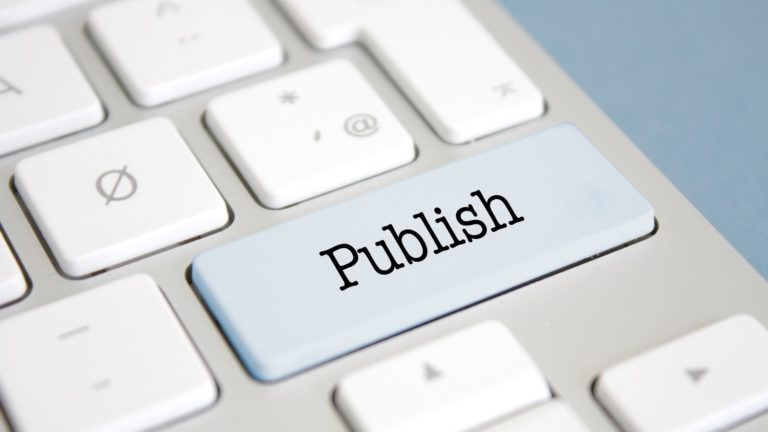Self-publishing is a process where an author publishes their work without the involvement of a traditional publishing house.
It has become an increasingly popular option for authors in recent years, and with the rise of e-books and digital platforms, self-publishing has never been easier. However, before making the decision to self-publish, it’s important to understand the pros and cons of this route.
In this comprehensive guide, we will explore the various benefits and drawbacks of self-publishing and provide a balanced perspective on the current state of self-publishing.

Pros
Self-publishing has several advantages, which include:
Control over the Creative Process
Self-publishing gives authors complete control over their creative process. They have the freedom to write what they want, how they want, and when they want. This allows them to be true to their vision and produce a book that is authentic to their voice.
Faster Publication Process
The traditional publishing process can be slow and time-consuming, with authors waiting months or even years to see their work in print. Self-publishing allows authors to bypass this process and get their book out to readers much quicker.
Potential for Higher Royalties
Traditional publishers often take a large percentage of royalties earned from book sales. Self-published authors, on the other hand, have the potential to earn a higher percentage of royalties as they retain control of the pricing and distribution of their book.
Greater Flexibility in Marketing and Promotion
Self-published authors have more control over how they market and promote their book. They can use social media, book blogs, and other online platforms to reach their target audience, rather than relying on the traditional publishing house’s marketing efforts.
Cons
While self-publishing has its advantages, it also has several downsides that authors should consider before making the decision to self-publish.
These include:
Limited Distribution Channels
Self-published books may not be as widely available in bookstores or libraries as traditionally published books. This can make it harder for readers to find them and for authors to reach a larger audience.
Increased Financial Responsibilities
Self-publishing can be a costly process, with authors having to pay for editing, design, and marketing expenses out of their own pocket. Additionally, self-published authors may not have access to the same resources that traditional publishers provide, such as advance payments, which can make it more challenging to make a living as a self-published author.
Lack of Validation from Traditional Gatekeepers
Traditional publishers act as gatekeepers, filtering out books that they deem to be of poor quality. The lack of validation from traditional gatekeepers can make it more difficult for self-published authors to establish credibility and gain a following.
Difficulty in Obtaining Reviews and Credibility
Self-published books may not receive as many reviews from professional reviewers as traditionally published books, which can make it harder for them to gain credibility. Additionally, self-published books may not be taken as seriously by literary critics and other gatekeepers in the literary community.
It’s important to note that self-publishing has come a long way in the recent years, and many indie authors have found success and validation.
However, it’s important for authors to weigh the pros and cons before making a decision to self-publish. It’s also important for them to understand that self-publishing is not a one-time decision, but a continuous effort in which they have to invest time and money to make a living out of it.
How to Decide if Self-Publishing is Right for You
Deciding whether self-publishing is the right path for you can be a difficult decision. Here are some steps to help you assess whether self-publishing is the right choice for you:
Assess Your Goals and Motivations
Before making the decision to self-publish, it’s important to understand your goals and motivations. Are you looking to make a career out of writing? Are you looking to reach a specific audience? Understanding your goals and motivations will help you make a more informed decision about whether self-publishing is the right choice for you.
Understand the Financial and Logistical Requirements
Self-publishing can be a costly process, and it’s important to understand the financial and logistical requirements before making a decision. You will need to consider the costs associated with editing, design, and marketing expenses. You should also consider the time and energy required to market and promote your book.
Research Potential Partners and Vendors
Self-publishing platforms, editors, cover designers, and marketing experts can be a great resource for self-publishing authors. It’s important to research potential partners and vendors to find the best fit for your book and budget. Make sure to read reviews and ask for recommendations from other self-published authors.
Ultimately, the decision to self-publish is a personal one that depends on your individual goals and motivations. By assessing your goals, understanding the financial and logistical requirements, and researching potential partners and vendors, you’ll be better equipped to make an informed decision about whether self-publishing is the right choice for you. It is also important to keep in mind that self-publishing is not a one-time decision, but a continuous effort that requires time, energy, and money.
Self-publishing is a viable option for authors who want to have control over the creative process, benefit from a faster publication process, have the potential for higher royalties, and greater flexibility in marketing and promotion.
However, it also has downsides, such as limited distribution channels, increased financial responsibilities, lack of validation from traditional gatekeepers, and difficulty in obtaining reviews and credibility. It is important for authors to weigh the pros and cons carefully before deciding on self-publishing.
It’s also important to understand that self-publishing is not a one-time decision, but a continuous effort that requires time, energy and money.



